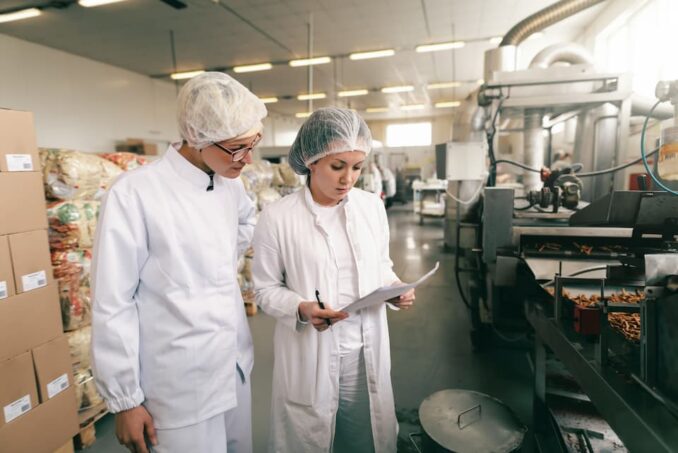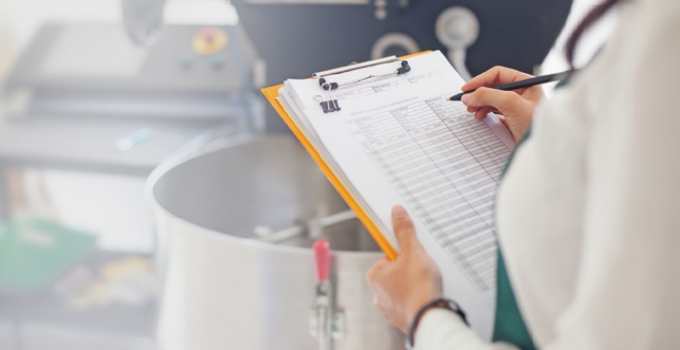The food safety inspection process is essential to ensuring that the food we eat is safe, clean, and free from contaminants. However, the process can be confusing and overwhelming for many people, with many rules and regulations to follow.
If you are not sure how to follow these rules, the best option is to seek support of food safety consultant. In this article, we’ll provide five tips to help you better understand the food safety inspection process and how it works.
1. There are Different Types of Food Safety Inspections

Source: fooddocs.com
Several different types of food safety inspections can be conducted by regulatory agencies, each with a specific purpose. Here are a few examples:
Routine inspections: These inspections are typically conducted on a regular basis, annually or every few years, to ensure that a food establishment is following all relevant food safety laws and regulations.
Complaint inspections: If someone files a complaint about a specific food establishment, claiming that they got sick after eating there, an inspection may be conducted to investigate the issue.
Follow-up inspections: If a food establishment fails a routine or complaint inspection, a follow-up inspection may be conducted to ensure that the necessary corrective actions have been taken.
Special events inspections: If a food establishment is hosting a special event. For example, a wedding reception or a corporate event. In that case, they may be required to undergo a special events inspection to ensure that all food safety guidelines will be followed.
It is important to keep in mind that there are many cases where businesses were not expecting the inspection, and were not prepared for them. It can lead to penalties and even closing the business for some time. Another problem is that your customers will find out the reason why your shop is closed, and that will affect your reputation.
2. Learn more About Regulations and Guidelines
There are many federal, state, and local regulations and guidelines that food establishments must follow to pass a food safety inspection. Some examples include:
Proper food storage and handling: Foods must be stored at the correct temperature to prevent the growth of bacteria, and they must be handled in a way that prevents cross-contamination For example, by using separate utensils and cutting boards for raw and cooked foods.
Cleanliness and maintenance: Food establishments must maintain a high level of cleanliness, including regular cleaning of equipment and surfaces, to prevent the spread of bacteria and other contaminants.
Employee hygiene: Employees must follow proper hygiene practices, like washing their hands frequently, wearing hairnets and other protective clothing to prevent the spread of contaminants.
Following these clear rules is the best way to keep everything under control and prevent potential issues with inspections. It will help you and your workers feel more relaxed in case that there is a sudden check-out on your business.
3. Know What to Expect During an Inspection

Source: cdpehs.com
If you are a food establishment owner or manager, it’s important to know what to expect during a food safety inspection. Here are a few things that an inspector may look for:
Food storage and handling: The inspector will check to make sure that foods are being stored at the correct temperature and that proper food handling practices are being followed.
Cleanliness and maintenance: The inspector will look for evidence of regular cleaning and maintenance, including clean surfaces, equipment, and utensils.
Employee hygiene: The inspector will observe employee hygiene practices to ensure they follow proper protocols.
Pest control: The inspector will check for evidence of pests like mice and cockroaches, and ensure that appropriate pest control measures are in place.
4. Learn More About Your Rights and Responsibilities
As a food establishment owner or manager, you have certain rights and responsibilities regarding the food safety inspection process. Here are a few things to keep in mind:
You have the right to ask the inspector to show their credentials and to explain the purpose of the inspection.
You are responsible for providing the inspector with access to all areas of your establishment that are relevant to the inspection.
5. Know What to Do if You Fail an Inspection
If your food establishment fails a food safety inspection, it’s important to take immediate action to correct any issues and prevent them from happening again in the future. Here are a few things to keep in mind:
Identify the issues: The inspector will provide you with a report detailing the issues that were found during the inspection. It’s important to carefully review this report and identify the specific issues that need to be addressed.
Develop a plan: Once you have identified the issues that need to be addressed, you’ll need to develop a plan to correct them. That may involve training employees on proper food handling and hygiene practices, improving maintenance and cleaning procedures, or making necessary repairs or upgrades to equipment.
Follow through with the plan: It’s important to follow through with your plan and make sure that all necessary corrective actions are taken. That may require additional training for employees or investing in new equipment.
Request a follow-up inspection: Once you have made all necessary corrections, you can request a follow-up inspection to ensure that your food establishment is in compliance with all relevant food safety regulations.
Conclusion

Source: globalfoodsafetyresource.com
The food safety inspection process is an essential part of ensuring that the food we eat is safe and free from contaminants. By understanding the different types of inspections, the regulations and guidelines that must be followed, and your rights and responsibilities, you can be better prepared for a food safety inspection and take the necessary steps to ensure that your food establishment passes.
All of these laws and rules are very important because they will motivate shop owners and all businesses to pay more attention to hygiene and other details that could lead to issues. Also, it will prevent avoiding any rules related to food safety, like using expired products, not keeping the food in the right condition, and more.





